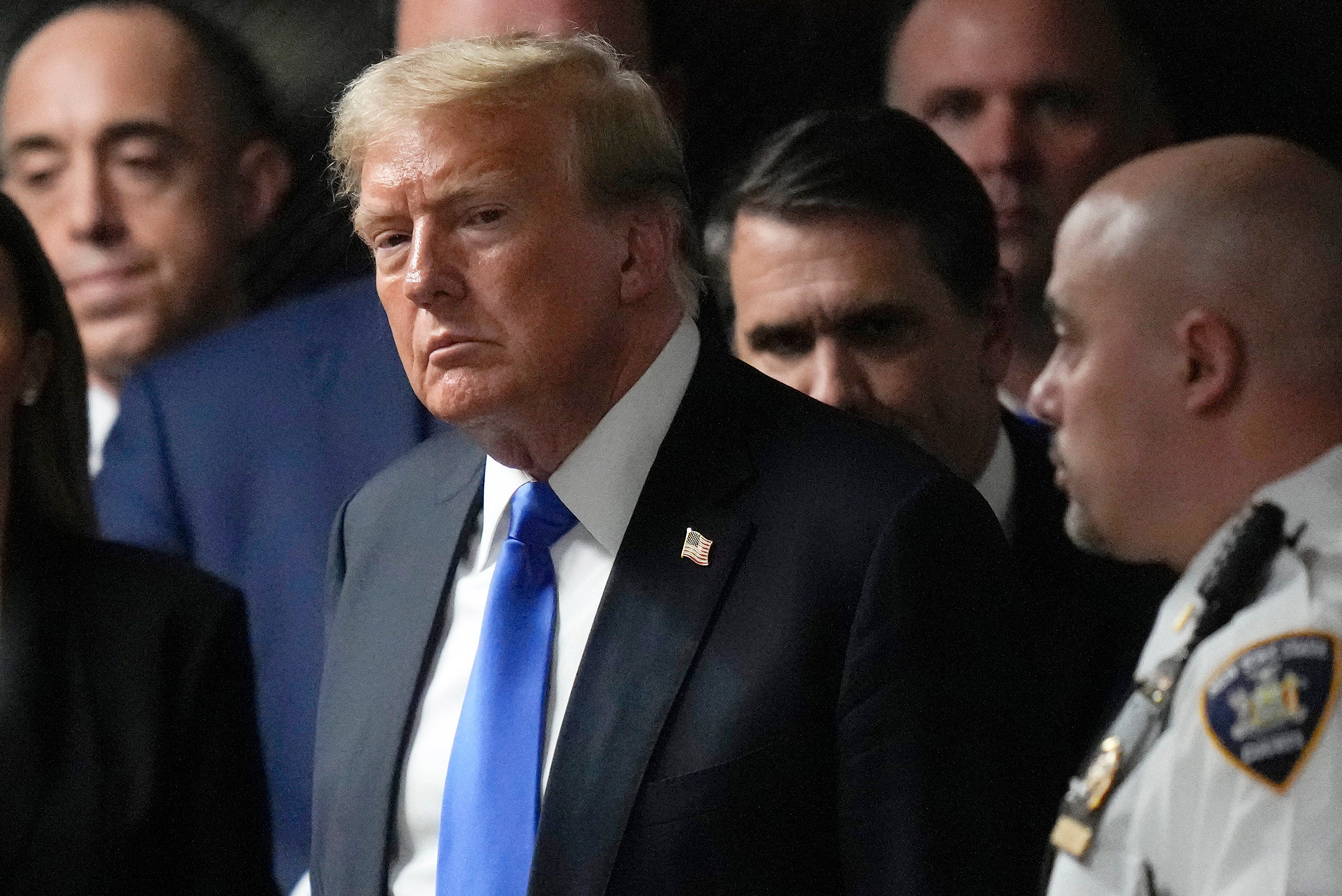The judge presiding over Donald Trump’s hush money trial is postponing the former president’s sentencing to September after Manhattan prosecutors said they would not oppose Trump’s request to delay in the wake of the Supreme Court’s decision granting him “absolute” immunity from criminal prosecution for “official” acts.
In a letter to Justice Juan Merchan on Tuesday, prosecutors with the office of Manhattan District Attorney Alvin Bragg said Trump’s arguments are “without merit” but they do not oppose his request to push back the sentencing date as he files his legal arguments.
Trump was initially scheduled to be sentenced on July 11.
He will now be sentenced on September 18, “if such is still necessary,” according to Merchan.
Trump’s attorneys sent a letter to the judge on Monday in the hopes of delaying his sentencing and blocking his guilty verdict.
The letter arrived within hours after a ruling from the nation’s high court that shields Trump and any other presidents from criminal prosecution for actions considered “official” duties while in office.

Prosecutors are also imminently expected to submit their recommendations to the court for Trump’s sentence, which is likely to be the only criminally consequential action against the former president before Election Day.
Judge Merchan will ultimately set the sentence. Trump could face up to several years in jail, or probation, community service, hefty fines or some combination of those terms. Judge Merchan will likely also pull from guidance from Trump’s interview with a New York probation officer last month.
Trump was convicted on May 30 on all 34 counts against him after jurors deliberated for roughly two days.
The former president falsified business records in connection with a scheme to influence the 2016 presidential election by paying hush money to an adult film star whose story about having sex with Trump threatened to derail his campaign.
On Monday, Trump claimed that the Supreme Court’s decision “should end all of Crooked Joe Biden’s Witch Hunts against me,” including “the New York Hoaxes” — his hush money case, the civil fraud judgment that has him on the hook for nearly half a billion dollars, and a jury’s verdict in a federal defamation trial.
His attorneys argued that the hush money case “should never have been put before a jury” following the Supreme Court’s ruling. They requested a deadline of July 10 to file a motion based on the high court’s decision.
Trump’s attorneys argued that witness testimony about events in the Oval Office, Trump’s social media posts and phone records during his term, and an Office of Government Ethics form about payments to Michael Cohen should not have been admitted into evidence under the Supreme Court’s new “presidential immunity doctrine.”
“Under Trump, this official-acts evidence should never have been put before the jury,” they wrote on Monday.
“After further briefing on these issues beginning on July 10, 2024, it will be manifest that the trial result cannot stand,” they added.

